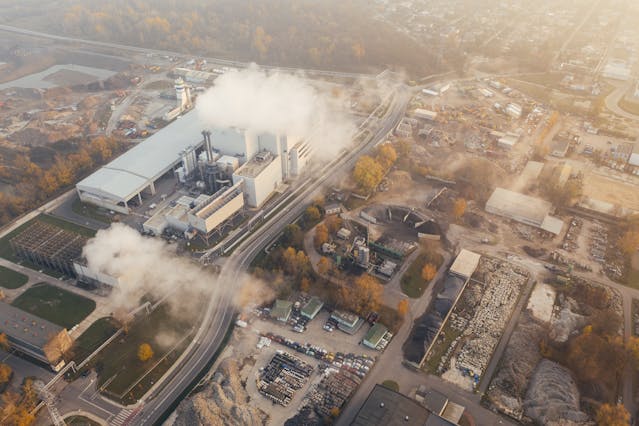The oil sector is currently experiencing a period of change due to technological advancements that are reshaping crude oil processing. With the introduction of automation and eco-friendly solutions, the industry is using equipment to improve efficiency, safety, and sustainability. This piece delves into how these technological advancements are transforming oil processing, offering a more profitable and environmentally conscious future.
Automation and Real-Time Data Analysis
Critical developments in crude oil processing involve incorporating automation and real-time data analysis. Today, refineries are equipped with sensors and advanced control systems that oversee every step of the production process. This automation helps minimize errors and streamline operations, ensuring that crude oil processing runs smoothly. Refineries can adjust based on real-time data, leading to product quality and operational safety.
Cutting-Edge Separation Techniques
At the core of crude oil processing lies the separation of hydrocarbons. Innovative technologies like membrane filtration and centrifugal separators are now replacing methods such as distillation. These modern techniques offer precision and efficiency, reducing energy consumption and waste generation. By optimizing the separation process, refineries can extract yields of byproducts, like gasoline and diesel, from each barrel of crude oil.
Improved Catalytic Processes
Catalysis’s role is crucial in converting oil into usable goods. Technological advances allow for efficient transformations of crude oil into higher-quality products. For example, modifications to zeolite catalysts have been made to enhance their ability to break down hydrocarbons effectively. These improvements do not increase output. Also, prolong the lifespan of the catalysts, reducing the need for frequent replacements and cutting operational expenses.
Efforts Towards Energy Efficiency
Modern equipment is also transforming crude oil processing by enhancing energy efficiency. Technologies like heat integration systems utilize waste heat from one part of the process to power another, significantly lowering the energy needed to sustain operations. This does not save money. It also reduces refineries’ carbon footprint, contributing to global efforts against climate change.
Mitigation of Environmental Impact
Preserving the environment drives innovation in the oil industry. New technologies aim to lessen the consequences of crude oil processing. Practices such as sulfur recovery and carbon capture are now commonplace in refineries. These methods adhere to standards and convert pollutants into valuable byproducts, turning environmental challenges into profitable opportunities.
Adoption of Sustainable Technologies
Amidst a shift toward energy sources, the oil sector is also adapting. Many refineries incorporate energy sources, like wind power, into their operations. The integration is helping to reduce dependence on fuels for power generation and reflects the industry’s dedication to practices.
Safety Measures Improvement
Refineries are becoming work environments due to the implementation of monitoring systems and automated technologies. State-of-the-art equipment can identify safety issues, enabling proactive maintenance and repairs. This safeguards the workforce and prevents costly shutdowns and accidents, ensuring a smoother operational process.
Use of Advanced Materials for Equipment Durability
The longevity of processing equipment is essential for ensuring operations. Innovations in materials science have resulted in the creation of corrosion alloys and durable composites that can withstand the challenging conditions of oil processing. These materials prolong the lifespan of equipment, lower maintenance expenses, and promote sustainable production practices.
The oil industry is entering an era driven by advancements that enhance efficiency, safety, and sustainability in crude processing. These innovations do not propel the industry forward. It also aligns with global environmental goals, showcasing a commitment to responsible energy management. As these technologies progress, they are set to redefine the norms of the oil sector by making processes more efficient and environmentally friendly. For industry participants seeking to capitalize on these advancements, OTSO Energy Solutions offers an array of oil and gas equipment tailored to address challenges, standing out for its cutting-edge offerings that can modernize any operation, turning it into a top-notch facility that sets standards for efficiency and environmental responsibility within the industry.










 The 2024 virtual Men’s Round Table will be held Q4, 2024, date TBD.
The 2024 virtual Men’s Round Table will be held Q4, 2024, date TBD.













